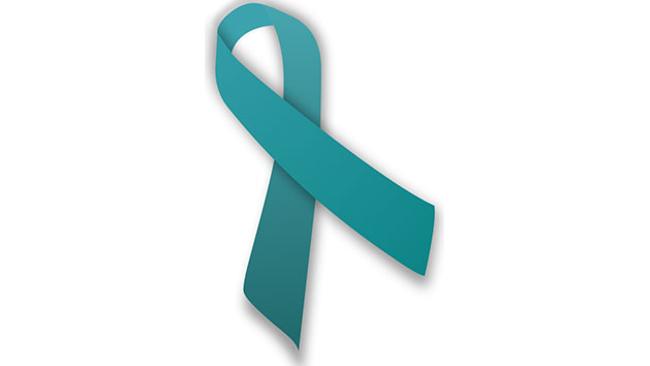


IT WAS 2010, and a waitress at the city’s Book Café — a popular haunt in the capital for artists, established and up-and-coming — was on a roll. The bubbly, large-eyed Talent Yakuda was in high demand. She was popular with patrons (at least according to her boss Paul Brickhill), thanks to her hardworking ethic.
Like many of her age group, Yakuda, a mother-of-three routinely burned the candle at both ends — as all those who have done shift work in the hospitality industry know. She existed on fast food and energy drinks downed between work and home — late in the evening or early morning! Every so often her frenetic lifestyle would catch up with her as it did one particular morning.
She had just returned home one early morning after “an exceptionally heavy night” at the café, where a popular mbira group had played till the early morning hours, and she was tired. “The following morning I woke up feeling like I was hit by a truck,” said Yakuda. Every muscle ached. She dismissed her sore body as a sign that it had been an unusually busy shift. By evening, stiff muscles were the least of Yakuda’s problems. Her pain had worsened, and it was now accompanied by shortness of breath and severe abdominal cramping. She made an appointment to see her doctor.
Gall bladder trouble, the physician surmised after a quick examination. Recommended treat-ment: yank the pear-shaped organ that, when healthy, helps the liver flush fats from the body but, when faulty, causes excruciating pain. He gave Yakuda a prescription for pain-killers and sent her for an ultrasound to confirm that her gall bladder was indeed the culprit. It wasn’t.
“When they did the ultrasound, they found ‘lesions.’ They could see there were spots all over my liver,” Yakuda says. She was concerned but still blissfully ignorant of the potential ramifications.
“I didn’t know,” she says, “that lesions meant tumors.”
A battery of tests over the following weeks revealed the bomb: Yakuda was suffering from cancer of the cervix! Why Me? Yakuda pressed the doctor on her options. “Just try and live a normal life,” he told her.
“How the hell could I do that? How could I live with cancer without thinking of dying every day?” she wondered. “Cancer is such a frightening word. How could this be happening to me?”
Yakuda is just but one of an increasing number of women affected by cervical cancer. According to the Zimbabwe National Cancer Registry, at least 32 percent of women diagnosed with cancer in 2010 have cervical cancer. Cervical cancer also accounted for about 15 percent of all cancer deaths in the same year.
Black women in Zimbabwe are at a greater risk of contracting this disease. Cancer of the cervix was traditionally a disease of older women (over 40 years) but nowadays, more and more younger women — like Yakuda — are being diagnosed with this disease. Despite vast medical and technological advancements the world over women and girls in Zimbabwe remains highly vulnerable to health challenges such as cervical cancer.
Cervical cancer occurs when abnormal cells on the cervix grow out of control. The cervix is the lower part of the uterus that opens into the vagina. Cervical cancer can often be successfully treated when it’s found early. It is usually found at a very early stage through a Pap test.
Most cervical cancer is caused by a virus called human papillomavirus (HPV.) You can get HPV by having sexual contact with someone who has it. There are many types of the HPV virus. Not all types of HPV cause cervical cancer. Some of them cause genital warts, but other types may not cause any symptoms.
According to medical doctor, Obadiah Moyo, chief executive of Chitungwiza General Hospital, cancer of the cervix as a disease has ravaged our nation with over 5 000 new diagnoses being made and over 1 000 deaths per year. “Cervical cancer has as a result emerged to be the major public health challenge facing women in Zimbabwe today. In fact,” he adds, “it is the leading cancer in the country.”
Moyo further explains that one can have HPV for years and not know it. It stays in your body and can lead to cervical cancer years after you were infected. This is why it is important for you to have regular Pap tests. A Pap test can find changes in cervical cells before they turn into cancer. If you treat these cell changes, you may prevent cervical cancer.
Abnormal cervical cell changes rarely cause symptoms but one may have symptoms if those cell changes grow into cervical cancer. “As part of your regular pelvic exam, you should have a Pap test,” he advises. During a Pap test, the doctor scrapes a small sample of cells from the surface of the cervix to look for cell changes. If a Pap test shows abnormal cell changes, your doctor may do other tests to look for pre-cancerous or cancer cells on your cervix.
Your doctor may also do a Pap test and take a sample of tissue (biopsy) if you have symptoms of cervical cancer, such as bleeding after sex. “Depending on how much the cancer has grown, you may have one or more treatments. And you may have a combination of treatments. If you have a hysterectomy, you won’t be able to have children. But a hysterectomy isn’t always needed, especially when cancer is found very early,” said Moyo.
The cause for cervical cancer is generally unknown. Although cervical cancer is typically a slow-moving cancer, and there are numerous studies under way, currently there is no cure. Yakuda says she did not know it, but in that moment her doctor had planted the seeds for personal revolution, she says. “I was not going to sit back and wait for the unknown. I was going to dive in and become a full-time cervical cancer specialist!” said Yakuda, “and not just a statistic!”
With massive support from her husband, she set about trying to find out everything she possibly could about cancer. She sought second, third and fourth opinions. “If I had listened to one of the first doctors I talked to, I don’t know what would have happened to me,” she says. “I may be a statistic by now!”
She hit the books and the Internet like she was studying for a PhD from Google University, she says, laughing. And she began the empowering process of documenting her journey — everything and everyone she met, from the general doctors to specialists to the quacks. Today, she has a documentary on her journey. (Beware of quick fixes, she warns: “If anyone offers guarantees — run!”) – Patrick Musira
newsdesk@fingaz.co.zw